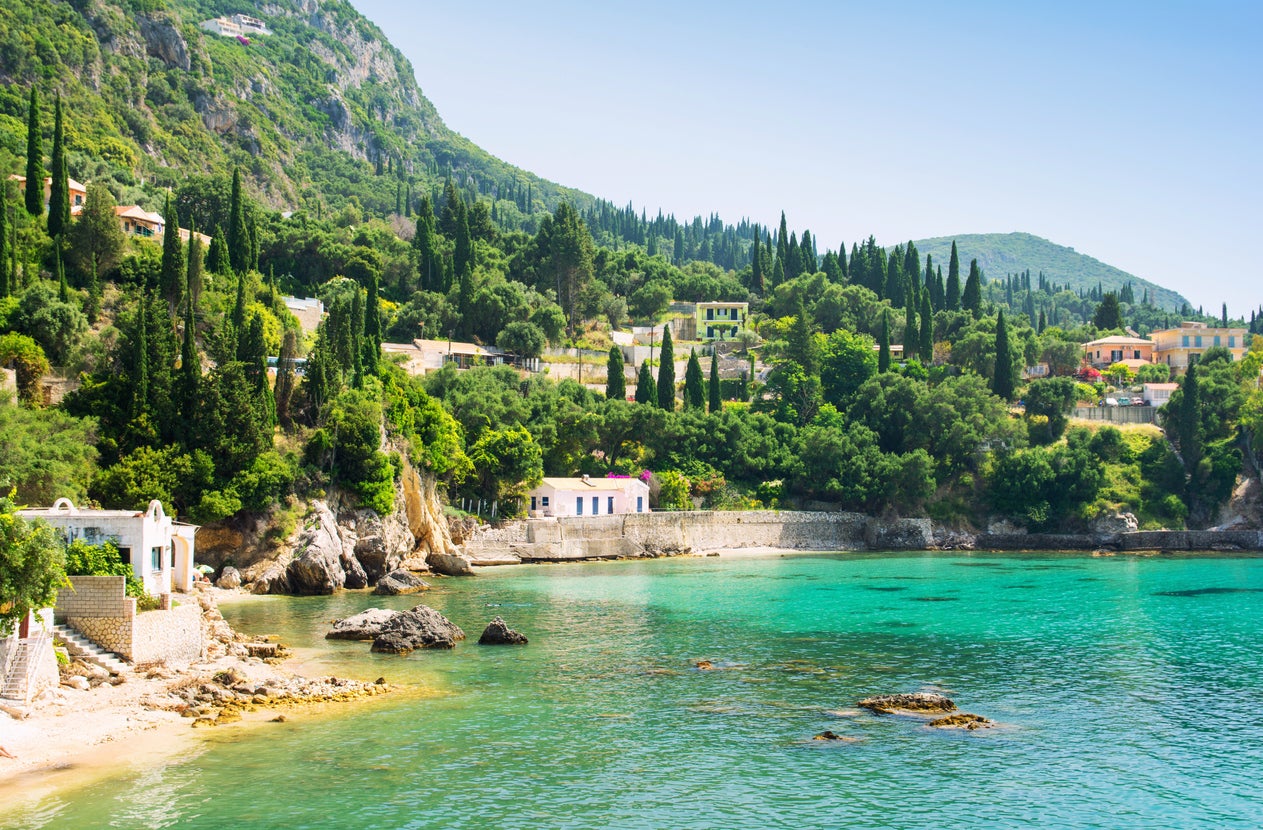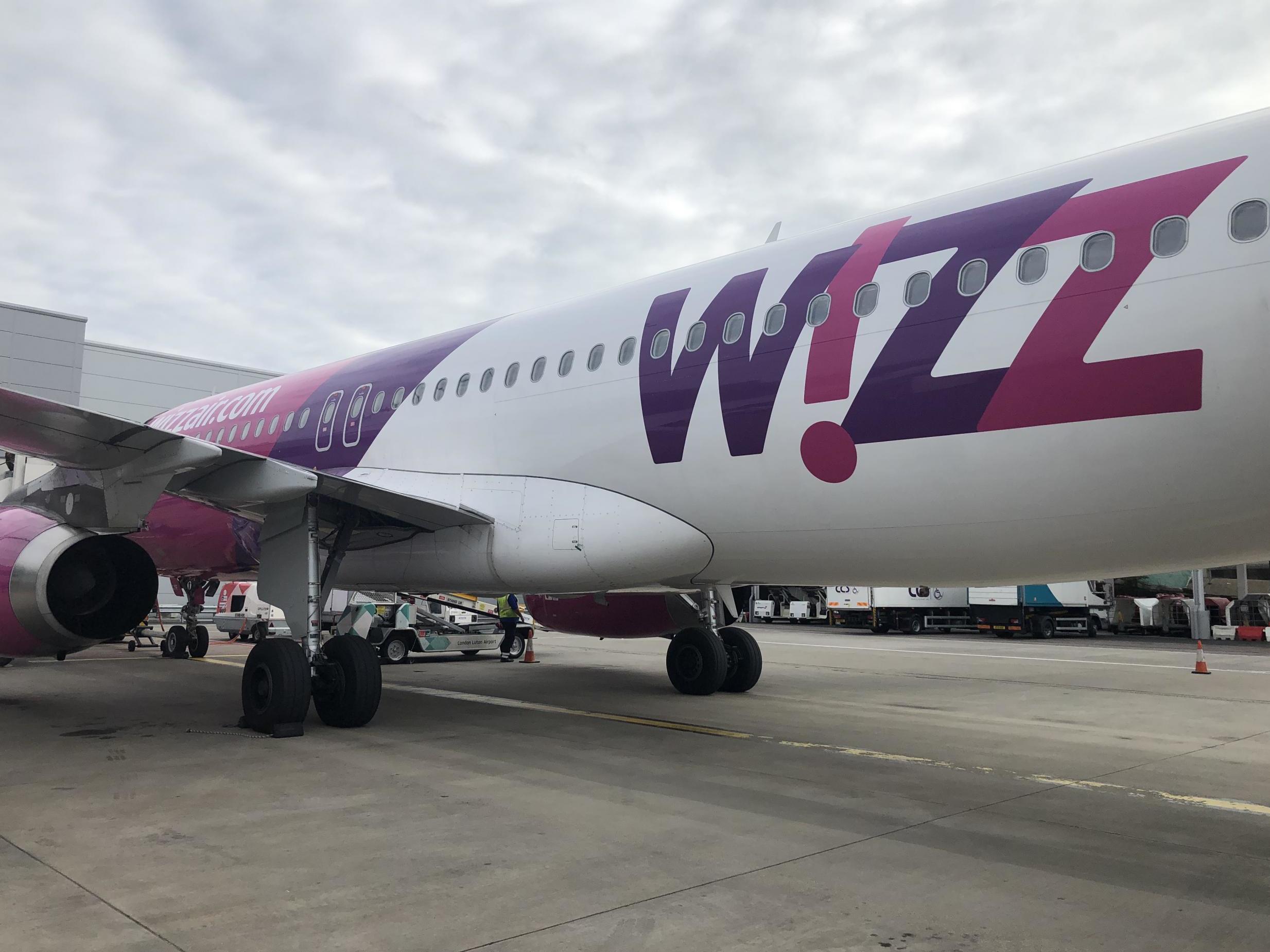Coronavirus: Should my sister be anxious about an August Corfu trip?
Simon Calder answers your questions on travel during and in the wake of the pandemic


Q We are booked to travel with my sister and her family to Corfu in mid-August. She’s really anxious about it but I’m trying to reassure her. Do you think it’s likely to go ahead? I am feeling positive; I feel travel will have to resume as well as it can do by the summer. But I thought it best to get your view on it.
Name supplied
A Plenty of people are anxious about the prospect of travelling abroad again. Their nerves are not helped by the continuing uncertainty about when “project lift-off” will see holidaymakers heading abroad. I predict, though, that most short-haul trips in mid-August will go ahead.
Their concern is understandable – beginning with the possibility of contracting coronavirus during the journey. This worry was exacerbated by the furore over a pretty full Aer Lingus flight from Belfast to London on Monday morning. Pictures on social media showed zero chance of social distancing on board the packed plane.
Others fret about the risk that they might succumb to Covid-19 while abroad; while the chance of picking up the virus are lower almost anywhere outside Britain, it would be perfectly possible to contract it while in the UK but become symptomatic abroad.
Given the large number of British travellers who have become stranded abroad by flight bans and local regulations, still more prospective holidaymakers fear being caught in someone else’s lockdown. And some simply don’t want to have a holiday in a location where social distancing and other restrictions will mean a less rewarding experience.
Your sister may be particularly concerned about one aspect, or have a more generalised nervousness about leaving the relative certainty of home.
The best advice I can offer is to wait. After a couple more months it will become much clearer about what the relative risks are, what precautions have been put in place and – hopefully – the positive experience that other holidaymakers are having.
Should she still be worried, then you could look at either postponing the trip – which is likely to involve extra expense – or, if it is a proper package holiday, transferring it to friends or family who are keener on a holiday. This typically costs £50 per person to change the name, plus whatever financial settlement you arrange with the people who take over the holiday.

Q My flights to the Isles of Scilly in June have been cancelled and fares refunded in full. However, my bed and breakfast says it is not going to refund my deposit for our stay, which I paid separately by bank transfer. The B&B owner has offered a voucher for use sometime this year but has told me that it is not transferable beyond 2020. Therefore I may have to forfeit my deposit. Is this right?
Terri B
A The Covid-19 pandemic is having a huge impact on tourism around Britain and the world – and the Isles of Scilly, which is 80 per cent dependent on tourism, is suffering especially strongly. But that does not alter your likely entitlement to a refund.
The first test: can you get to the beautiful and tranquil islands off the southwestern tip of Cornwall in June? The Isles of Scilly Steamship Company – which also runs the air service – has maintained a small number of flights operating from Land’s End airport for key workers, and a freight ship to keep islanders supplied with essentials sails three times a week.
Regular passenger flights as well as ferries to the main island, St Mary’s, are not bookable until 1 July – which is why you have had your fare refunded. However, the firm is keeping its options open, and it is not impossible that Scillonian III, the ferry from Penzance, may be sailing before that date. So the B&B proprietor can reasonably hang on to your deposit in the hope that you can turn up after all.
But if and when it becomes clear that tourism to the islands is not going to be possible in June, then you have a simple remedy: point out the latest guidance from the Competition and Markets Authority (CMA) on domestic tourism.
The crucial passage: “For most consumer contracts, the CMA would expect a consumer to be offered a full refund where a consumer cancels, or is prevented from receiving any services, because government public health measures mean they are not allowed to use the services.” The limited exception for a business holding back part of the payment is when “a contribution to the costs it has already incurred in relation to the specific contract in question”.
While your host will no doubt have spent time and money on refreshing the B&B over the winter, it would be difficult to argue that this was specifically for your stay. So I suggest you politely point the guidance out and ask for your money back.

Q I’m a fan of Wizz Air, and was glad to see that it is restarting flights in the face of all the coronavirus misery. But I also heard that it is doing so to avoid refunding passengers. Is that correct?
Neil T
A Wizz Air is based in Hungary and specialises in connecting the UK with destinations in eastern Europe – with ambitions to expand to a number of western European ones as well.
The airline has, as you say, been at the forefront of getting planes back in the air – with more than 20 routes currently served or planned from Luton. It is carrying key workers, travellers with urgent family issues and people who need to be repatriated.
But it appears that to help finance this expensive operation – at a time when few passengers are flying – Wizz Air is declining refunds or vouchers to travellers who booked on those very flights many weeks ago. Under European air passengers’ rights rules, if an airline is still operating a flight, it need not refund ticket holders who cannot travel.
That applies even in the current extreme circumstances, when most travellers are not allowed to reach the airport, let alone be sure of admission to their destination country. Many airlines that are still flying, including British Airways and Aer Lingus, recognise this situation and offer vouchers for future travel rather than cash refunds. But there is no legal requirement for them to do so.
I asked Wizz Air about the issue and was told: “Wizz Air’s business was built around a simple purpose: liberating lives through affordable travel.
“The crisis has prevented the airline from fulfilling this promise, however the restart of select Luton routes will provide a service for essential travel, for those who need to reunite with their families or travel for work. If we cancelled these flights, more passengers would remain stranded and unable to return home.
“In order to operate this service, Wizz Air is unable to offer refunds to passengers who do not wish to or cannot travel. Passengers who would like to cancel or rebook their flights can do so for a fee.”
That fee is a minimum of €60 (£52), which for many people who booked long in advance is likely to be more than the fare.

Q I’m pulling hair out with Tui. It offered a cash refund seven weeks ago. But today I got its new credit note! It’s impossible to get through on the phone – it’s either dead or cuts off every time. Help please?
Juliet
A Under the package travel regulations, Tui is required to provide a full cash refund within two weeks of cancelling a departure. Like almost all holiday firms, it is unable to meet the 14-day deadline. For the hundreds of thousands of customers whose trips have been cancelled by Britain’s biggest travel firm the process of obtaining a refund became more difficult in mid-April.
In an apparent bid to increase the take-up of vouchers, Tui chose to make the procedure for obtaining a refund more complex. The travel giant, which has cancelled all holidays up to and including 11 June 2020, is now giving customers a “refund credit” for the full value of their holiday whether they ask for one or not.
Holidaymakers are still able to insist on a refund – but only once they have been given a refund credit note. And they may not get that until weeks after their departure date. This is the opposite practice to some airlines. With Tui you must accept a credit note before phoning the company to ask for your cash back. But if you accept a voucher from British Airways or easyJet you won’t ever get a refund.
A spokesperson for Tui told me: “We are asking customers to call us, on either our 0800 line if using a landline, or 0203 for those using a mobile as the local number is included in free minute allowances. We are placing all our advisers on the phone systems, rather than splitting across multiple customer contact methods.”
So I am afraid all you can do is keep trying.
Email your question to s@hols.tv or tweet @simoncalder
Join our commenting forum
Join thought-provoking conversations, follow other Independent readers and see their replies
Comments